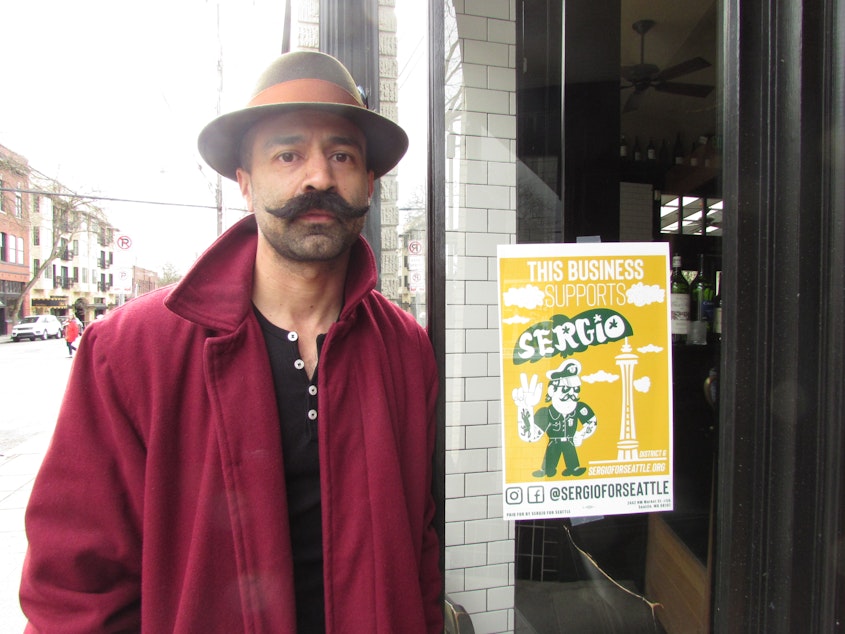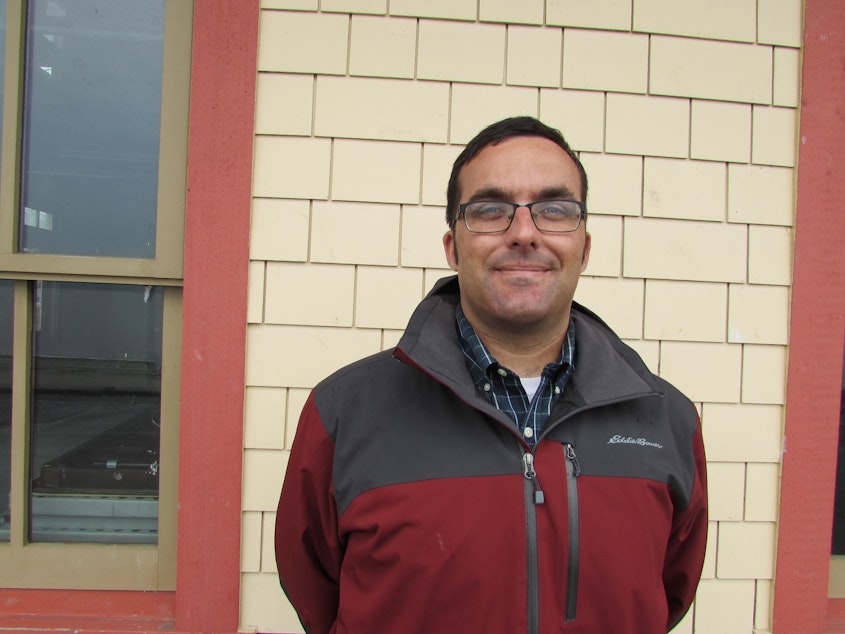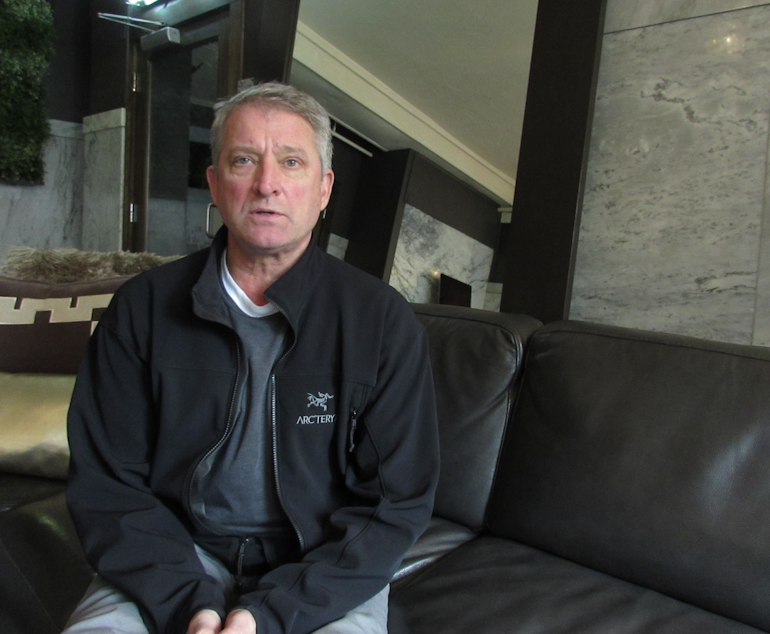Seattle police tackle urban disorder ... by running for City Council

‘We can’t arrest our way out of homelessness.’ That’s the mantra of local law enforcement.
But some police officers say they’re caught between disorder and complaints of crime. Now some officers are highlighting their challenges, by jumping into district races for the Seattle City Council.
Former Seattle police lieutenant Brendan Kolding said it’s no coincidence that at least three current and former police officers are running for Seattle city council this year.
Standing on Alki Beach, he said, “It speaks to the crisis that we’re in,” he said.
A year ago, Kolding worked patrol downtown, dealing with people on the street.
“What I would like us to have been able to do when I was out there was offer them a guaranteed shelter,” he said.
Kolding said he envisions FEMA-style tents, perhaps clustered to address different populations with different needs, like substance abuse or people fleeing domestic violence.
Kolding said right now officers have, as he puts it, no carrot and no stick.
“Our officers feel unsupported in their quest to try to solve some of these problems and deliver appropriate police services,” he said.
Kolding lives in West Seattle. He left his job with the Seattle Police Department earlier this year to campaign full-time for City Council in District 1 where he faces incumbent Lisa Herbold.
He said he’s heard from small business owners who must pay for trash cleanup from encampments, or who say they’re concerned about theft and threats of violence toward their employees.
“To me, that really signals we need to get this homelessness and public safety crisis under control if we’re going to have a business climate and business community that can actually thrive in the city,” he said.

Seattle police officer Sergio Garcia said he’s heard similar concerns on patrol in Ballard. That inspired him to run in District 6, where he lives.
“A mother has called us, said, ‘Hey, I’m pretty upset. I had to find my disabled son another job; he was having a hard time getting to work in a wheelchair,’” because the underpass was blocked by tents. Garcia said.
Garcia is fairly new to Seattle. He looks like an urban hipster with distinctive facial hair.
“The mustache started about a year ago,” he said. Garcia said it’s a good icebreaker when he goes on calls. He fell in love with Seattle and transferred to the Seattle Police Department after more than a decade of police work in Florida.
“I quickly learned that I was unable to do my job,” he said of working in Seattle.
Garcia said officers feel paralyzed because they don’t feel the current City Council supports them, and they’re afraid of being written up or reprimanded whenever they go out on a call.
“I’m so paranoid on what the outcome of that call could be,” he said. “Not necessarily the actual call but the fact that I might get jammed up for not turning on the video camera on the vehicle.”
Garcia is the only candidate so far who currently works for Seattle Police. He’s now assigned to patrol outside his council district.

The third candidate with police ties is former Seattle Police Chief Jim Pugel. He lives on Queen Anne and is running in District 7, which includes downtown neighborhoods he patrolled in the 1980s, like the area around the Moore Theater on Second Avenue.
“When I was a brand-new police officer, I worked down here in a two-person police car," Pugel said. "It was a pretty rough area. Lot of drug-selling … fights … it was a wild place.”
Now Pugel said he’s struck by the area’s growth and improvement.
Pugel said in his 35-year career, he's also seen breakthroughs on what felt like intractable issues.
There’s Seattle department's consent decree with the Justice Department to curb excessive use of force, which he said has resulted in training that made officers safer and better able to serve the public.
There’s new housing for “chronic inebriates,” an early example of the “harm reduction” strategy. And there’s the LEAD program, Law Enforcement Assisted Diversion, in which people avoid criminal charges by accepting services.
Pugel said in each case, there was stark opposition by some groups … at first.
“Nothing got done but we kept doing same actions over and over: prosecuting, defending, incarcerating, re-arresting,” he said. Finally the stakeholders got together and realized they “wanted more or less the same thing,” he said.
Pugel said homeless encampments pose challenges for the entire region’s social services and law enforcement.
“You get a lot of victimization of those inhabitants," he said. "I’m a very strong advocate of rehousing people as quickly as possible.”
Seattle Police Officers Guild President Kevin Stuckey said the guild is not involved in any of these races. He called the number of candidates with policing backgrounds "exciting" but said it would be hard for people to build enough name recognition to survive the crowded August primaries.
Of Pugel’s leadership at SPD, Stuckey said, “as an officer, he was someone I felt was fair.”
But Stuckey noted that former city council member Tim Burgess also brought police experience to his position. “It didn’t necessarily benefit us,” Stuckey said.
Stuckey credited the controversial KOMO hour-long special “Seattle Is Dying” for making public safety a broader topic of conversation.
He said if any candidate seeks SPOG’s endorsement after the primary, he’ll ask them to help address the department's staffing shortages.
“I’ll say we have to be as diligent about recruiting as we were about reforming the police department,” he said.




